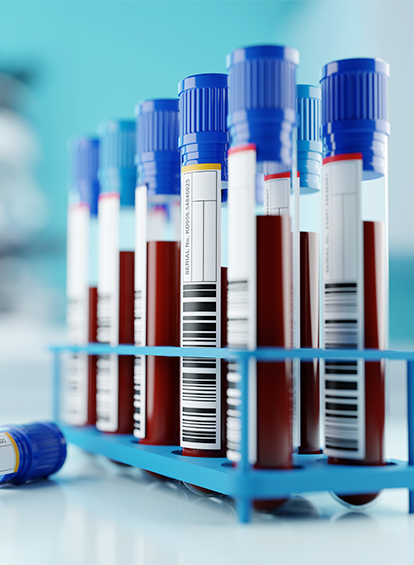Adult Psychiatry
Attention Deficit Hyperactivity Disorder (ADHD)
Attention Deficit Hyperactivity Disorder (ADHD) is a common neurodevelopmental condition that affects an individual’s ability to focus, control impulses, and manage activity levels appropriately. Symptoms often begin in childhood but can persist into adulthood, significantly impacting academic performance, work, relationships, and overall quality of life. With the right support, people with ADHD can learn to manage symptoms effectively and build on their unique strengths.

What is it?
ADHD is not a behavioural issue or the result of poor parenting—it is a medical condition rooted in the brain’s development and function. Individuals with ADHD often struggle with attention regulation, executive functioning, and emotional self-control. The condition can vary in severity and presentation, and no two individuals experience it in the same way.
ADHD may continue from childhood into adolescence and adulthood. In many cases, symptoms shift over time; for example, hyperactivity in children may present as internal restlessness in adults. Left unrecognised or untreated, ADHD can lead to difficulties with organisation, relationships, and self-esteem, but early intervention and tailored support can make a significant difference.
Book an appointment
Additional Information

Types of ADHD
ADHD is typically categorised into three primary presentations:
• Predominantly Inattentive Presentation: Individuals may find it difficult to maintain focus, follow instructions, organise tasks, or remember details. They may seem forgetful or easily distracted in daily routines.
• Predominantly Hyperactive-Impulsive Presentation: This includes signs such as constant fidgeting, excessive talking, difficulty sitting still, and acting without thinking.
• Combined Presentation: A blend of inattentive and hyperactive-impulsive symptoms, which is the most commonly diagnosed type.
Common Symptoms
Symptoms of ADHD can differ depending on age, environment, and individual characteristics, but commonly include:
• Difficulty maintaining attention on tasks or conversations
• Forgetfulness and frequently misplacing items
• Struggling to follow through on instructions or complete assignments
• Restlessness, fidgeting, and difficulty remaining seated
• Impulsive decisions, speaking out of turn, or acting without forethought
These symptoms can interfere with daily functioning and are often noticed across multiple settings, such as school, work, or home.
Causes & Risk Factors
ADHD is thought to develop due to a mix of genetic, neurological, and environmental factors. There is strong evidence that ADHD runs in families, suggesting a hereditary component.
Differences in brain structure and function, particularly involving neurotransmitters like dopamine, are also linked to the condition. Environmental factors—such as exposure to alcohol or tobacco during pregnancy, premature birth, and low birth weight—may increase the risk of developing ADHD. Stressful early life experiences may further exacerbate symptoms.
Assessment & Diagnosis
Diagnosis of ADHD involves a thorough clinical assessment that considers behavioural patterns and developmental history. This may include:
• Observations across different settings (e.g., home, school, or work)
• Standardised questionnaires or rating scales completed by parents, teachers, or the individual
• Evaluation to rule out other medical or psychological conditions that may mimic ADHD
A clear and accurate diagnosis is essential to develop a tailored treatment plan and support strategy.
First appointment: 90 min - initial mental health assessment, screen for ADHD and suitability for diagnostic interview (£595)
Second appointment: 90 min - diagnostic interview, confirmation (or not) of ADHD and treatment discussion, including medication and prescription for 4 weeks if appropriate. Report provided after this, detailing assessment and diagnosis and treatment (£595)
Medication cost is separate and paid at local pharmacy - usually £60-£100 for one month
Third appointment - (occurs if starting on medication): 30 mins – 3-4 weeks after commencing medication. If medication successful, further prescription and then writing to NHS GP to request NHS ongoing prescription. Then 3 month review, then 6 month review, then annual review. Each follow up is £250.
If 1st medication unsuccessful, approximately monthly appointments to retrial other medications, if appropriate and wished for by patient. Once settled, then writing to NHS GP to advise to request NHS ongoing prescription. Then 3 month review, then 6 month review, then annual review. Each follow up is £250.
Treatment Options
Effective management of ADHD often includes a combination of therapeutic, medical, and lifestyle-based interventions:
• Behavioural therapy: Focused on time management, organisation, and emotional regulation.
• Medication: Stimulants and non-stimulant medications can help improve concentration and reduce impulsivity and hyperactivity.
• Educational interventions: Adjustments at school or work to support focus, such as extra time or structured tasks.
• Lifestyle strategies: Incorporating consistent routines, physical activity, visual reminders, and regular sleep patterns can enhance symptom control.
With the right tools and a supportive environment, people with ADHD can manage their symptoms effectively and reach their full potential.
How We Can Help
At The Clinica, Dr. Arora provides expert diagnostic assessments and personalised treatment plans for adults experiencing ADHD. Through a comprehensive evaluation, she identifies the nature and extent of symptoms and offers recommendations that align with each individual’s goals and lifestyle.
We also support families, educators, and employers through training and consultation, helping them understand ADHD and how best to assist those living with it. If you suspect you or someone close to you may have ADHD, please contact our Booking Team at 01344 946363 or email info@theclinica.co.uk. We’re here to guide you every step of the way.
Frequently Asked Questions
After treatment has been stabilised (usually 3 months), most NHS GPs are happy to enter a ‘shared care agreement’, which means they prescribe the medication as long as overall ADHD care is under the named psychiatrist. I say most GPs, as in the last 10 cases, 3 GPs stated they required NHS ADHD service endorsement to prescribe. It is worth you checking with your GP if they do enter into shared care agreements with private providers BEFORE you start the process, if you are concerned about the cost of ongoing medication for ADHD.
Prescriptions written outside of planned appointments are charged at £30. Recurring cost of the medication from a pharmacy is typically £60-100 per month on a private prescription, but if stabilised, then the hope would be that the GP took over prescription (usual NHS monthly rate @£10 per month).
As above, when stabilised, reviews would be at 3 months, 6 months then yearly at the least.
National guidelines in the treatment of ADHD recommend at least an annual review with the ADHD specialist once treatment is stabilised. If there are issues e.g. side effects or incomplete response, then people tend to book in sooner.
Stimulant medications for ADHD are called ‘controlled drugs’ and guidelines recommend that each prescription is no longer than one month in duration. There may be exceptional circumstances eg foreign travel, which may allow for a longer prescription, at the prescriber’s discretion.
Yes, ADHD can be diagnosed at any age. Many adults were never diagnosed in childhood but continue to experience difficulties with focus, organisation, or impulsivity that affect their daily lives.
No, while medication is effective for many people, behavioural therapy, coaching, lifestyle changes, and educational support are also key parts of comprehensive treatment.
Yes, many individuals—particularly adults and girls—have the inattentive type of ADHD, which may present more subtly as daydreaming, forgetfulness, or disorganisation.
Yes, many people with ADHD find it difficult to manage frustration, impatience, or emotional outbursts, which can impact relationships and self-esteem.
While symptoms may evolve with age, many people continue to experience challenges into adulthood. However, with support and treatment, they can develop strategies to manage symptoms effectively.
Specialised Clinics
General Enquiries
Please send your enquiry to us and our Practice Manager will be in touch shortly. Alternatively, if you would rather speak to us or your enquiry requires our urgent attention, please call us on 01344 946363.







